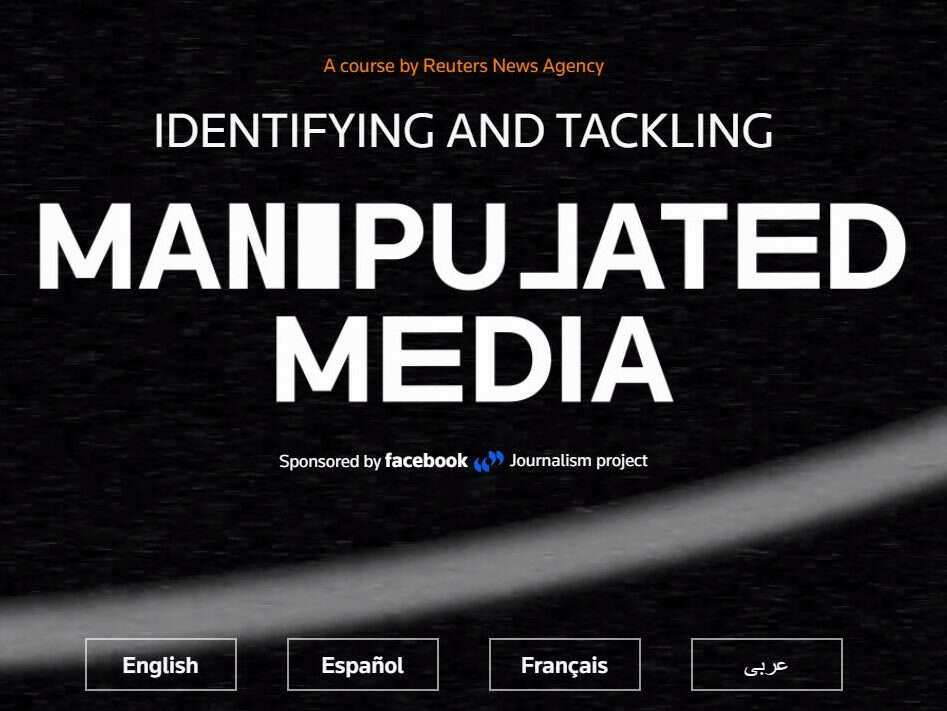
Reuters has launched a free online course to help journalists spot so-called “deepfakes” and other manipulated videos, images and audio content in the fight against fake news and disinformation.
The Identifying and Tackling Manipulated Media course is sponsored by the Facebook Journalism Project and is available now in English, French, Spanish and Arabic on the Reuters website.
Tampering with media in a deliberate attempt to deceive people presents a “fundamental threat to an informed democracy,” a Reuters spokesperson said.
The course aims to teach journalists how to spot fakes and verify genuine content. It will be available in more languages next year.
Deepfake videos use algorithms to create a facsimile of a person’s voice and their appearance, making them appear to be saying whatever the video’s creator desires.
The video technology side of deepfake software appeared on Reddit two years ago. Its origin is understood to be in imposing famous faces on bodies in pornographic videos.
A recent Reuters Institute study found more than half (55 per cent) of people around the world are concerned about their ability to separate what is real and fake on the internet
“Organisations around the world are increasingly alarmed by the spread and impact of misinformation on society,” said Jess April from Reuters.
“It’s become a major challenge for media organisations as they’re bombarded with user-generated and other third-party content.
“It’s a threat we at Reuters encounter every day, and this new course puts that expertise into practice to educate journalists and newsroom about identifying manipulated media to help stop the spread of misinformation.”
Fcaebook’s Julia Bain added: “We need to work across industries to better identify and address manipulated media.”
She said the course “is an important step to help journalists spot this type of content so we can stop the spread of misinformation online”.
Email pged@pressgazette.co.uk to point out mistakes, provide story tips or send in a letter for publication on our "Letters Page" blog
